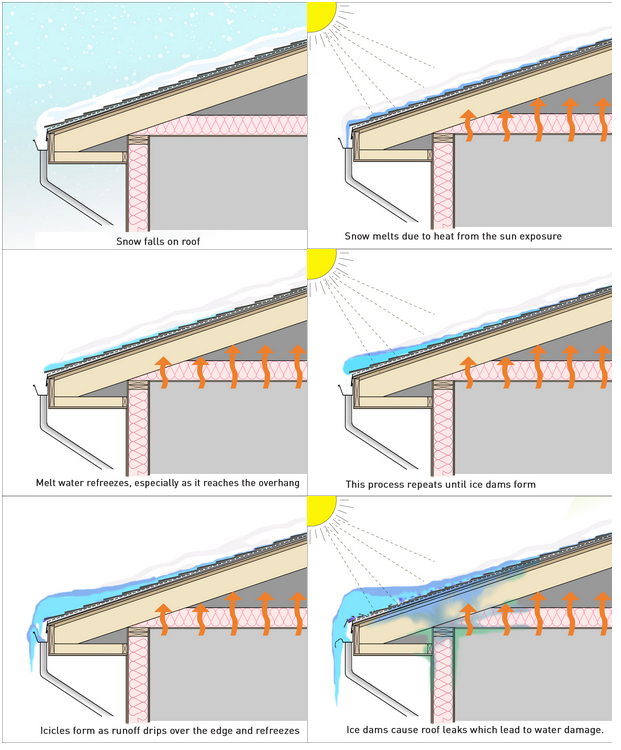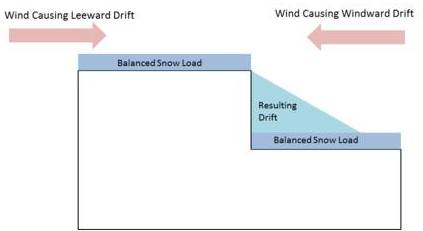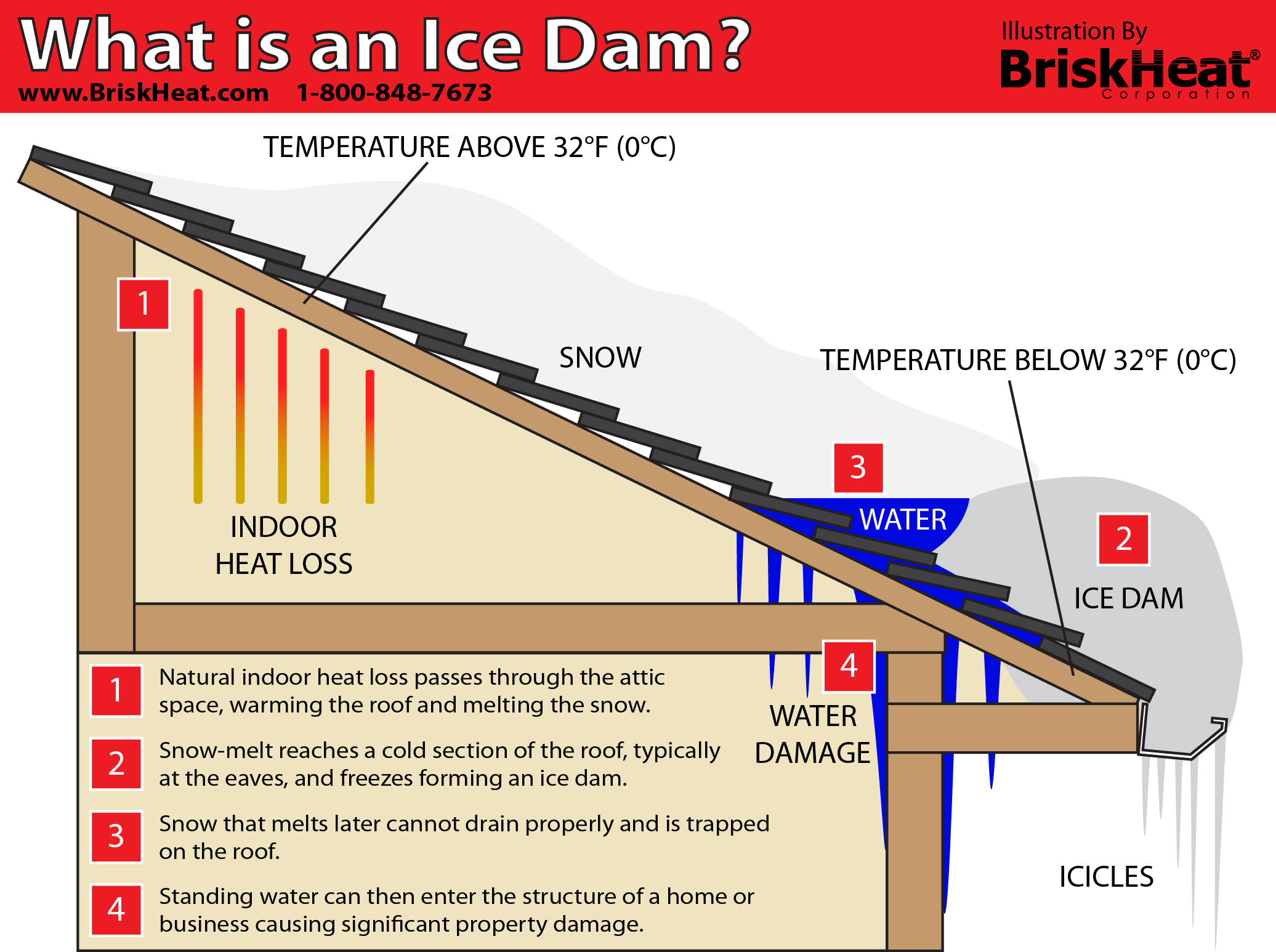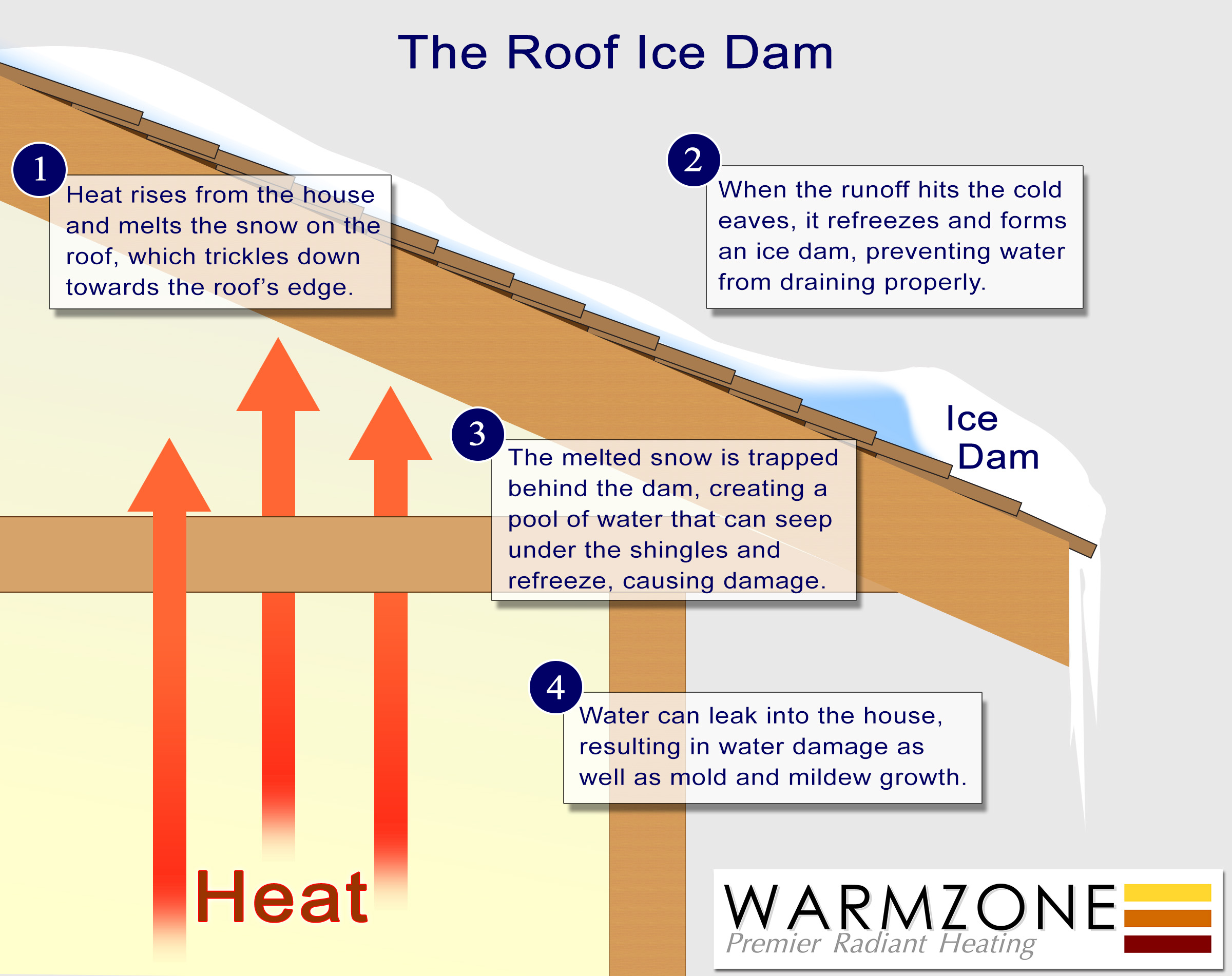The minimum roof pitch for shedding snow is around 30 or a 6 12 or 7 12 slope although this is not a definite as the material of your roof the direction of the snow and wind are some factors that can affect whether or not snow will slide as roofs of as little as 10 have been reported to shed snow.
Roof slope snow runoff.
On roof slopes between 4 12 and 6 12 rough textured roofing materials work best.
A small roof with a shorter length on the other hand will not collect a lot of water within a short period of time and will work just fine with the minimum roof slope for drainage.
Roof slopes lower than 4 12 tend to perform well with metal roofs which are less prone to leakage and ice dam formation.
Steeper slopes are ideal for areas that have higher snow loads and will also prevent the possibility of ponding water on the roof.
An example for a steep sloped roof is 8 12.
A 4 12 pitch being 4 inches of vertical rise over one foot or 12 inches of horizontal run.
At these slopes snow creeps rather than slides and is easy to manage.
This means that the rise of the slope goes up or down 8 inches for every 12 inches.
Roof slope equivalents as rise.
A wide roof with a steep slope will lead to faster runoff hence necessitating a slightly steeper slope for effective discharge of the rain water.
Roof pitch multiplier table.
The slope of a roof or pitch is determined by how many inches the roof rises over 1 foot or 12 inches.
When it comes to residential construction your roof is a visible part of the structure.
Degrees to pitch rise in run table.
Run in degrees and as percentage the minimum roof slope allowed by code for any type of roof is in 12 applicable only to coal tar pitch roof systems.
Flat roofs which aren t perfectly flat require a small slope to allow for water runoff.
In roofing it is expressed in inches of vertical rise over inches of horizontal run.
Complete list of roofing types.
A steep slope roof is one whose slope is greater than 3 12.
Low pitched roofs are generally difficult to maintain and you need special materials to prevent leaks.
There are advantages and disadvantages to having a steep pitch versus a shallow or low pitch the most obvious of which is the roof s ability to shed or withstand heavy snow rain or wind.










